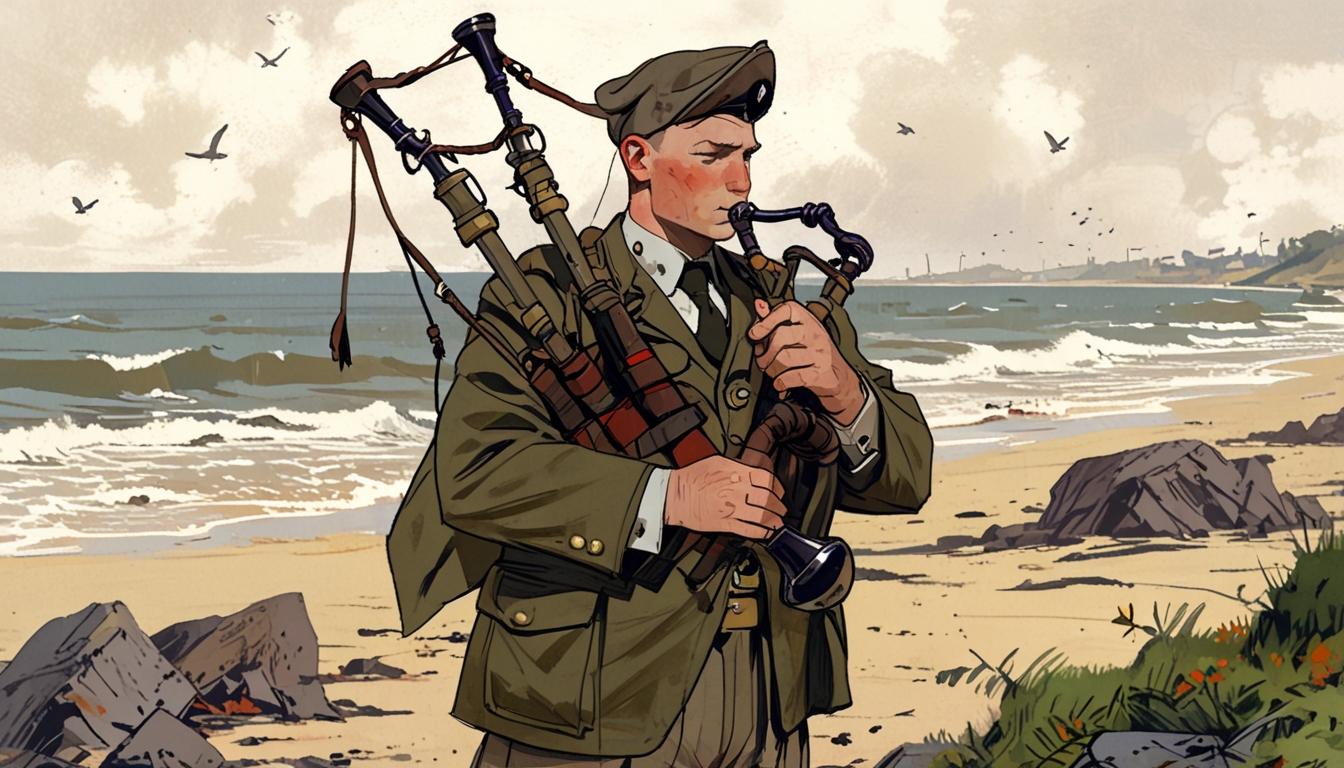Commemorating the Legacy of Bill Millin: The Mad Piper of D-Day
As the 80th anniversary of Victory in Europe (VE) Day approaches, the memory of Bill Millin, famously known as the "Mad Piper," remains vividly alive in the hearts of many. Millin, who died in 2010 at the age of 88, was a Scottish bagpiper who, unarmed but for a ceremonial dagger, famously played his bagpipes on the beaches of Normandy as Allied commandos fought to liberate Europe from Nazi occupation. His courageous act not only boosted the morale of troops but has become a poignant symbol of bravery and resilience.
Millin was the personal piper to Simon Fraser, the 15th Lord Lovat, who adhered to Highland tradition by allowing him to play despite formal military regulations prohibiting such actions during combat. As Millin stepped from his landing craft into the cold waters of Sword Beach, the sound of "Highland Laddie" rang out amidst the harrowing backdrop of warfare, serving as a rallying cry for soldiers facing the chaos of battle. His son, John Millin, reminisced about this storied past, noting on the occasion of VE Day that his father would have undoubtedly commemorated the day with his pipes. John shared, “It is so incredibly important to mark VE Day and remember all those who gave their lives in World War II.”
Honouring his father’s legacy has become a family tradition for John and his son Jacob, who both took up the bagpipes in later years. Ahead of the 80th anniversary of D-Day, they performed a series of tributes, playing in their home village of Rampton, Nottinghamshire, dedicating their music to the sacrifices made during the war. This emotional connection to their family history underscores the importance of remembering the lessons of the past, particularly as younger generations continue to forge a relationship with their heritage.
The significance of Bill Millin's actions goes beyond personal remembrance; they epitomize the collective memory of a nation. First Minister John Swinney highlighted this legacy, stating, “We owe a great debt of gratitude to all who served our country throughout World War II, especially those who made the ultimate sacrifice.” This sentiment resonates throughout Scotland, where thousands are expected to participate in a series of commemorative events, honouring those who fought and fell during the war.
The commemorations will feature a variety of events across the UK, including lighting up notable landmarks such as the Falkirk Wheel and Edinburgh’s City Chambers, which will be bathed in light to celebrate the historic moment. Additionally, a national concert titled “Scotland’s Salute – VE Day 80” at the Usher Hall in Edinburgh will provide a space for reflection and gratitude, echoing sentiments expressed by public figures and local communities.
Moreover, efforts to remember the contributions of various military units continue, reflecting the multifaceted nature of the Allied effort during World War II. For example, concerts and services will pay tribute not only to Scottish soldiers but also to the role played by Norway’s sailors in the campaign against the Nazis. This inclusivity in remembrance helps to honour the diverse makeup of those who fought for freedom across Europe.
As we reflect on the legacy of Bill Millin and the sacrifices made during World War II, the hope is that his story—and the stories of countless others—serves to remind us of the fragility of peace and the enduring strength found in unity and remembrance. Events such as these reaffirm our collective responsibility to remember those who served, ensuring that the lessons of history continue to impart wisdom for future generations.
##Reference Map:
- Paragraph 1 – [1], [4]
- Paragraph 2 – [1], [5], [6]
- Paragraph 3 – [2], [3]
- Paragraph 4 – [1], [5]
- Paragraph 5 – [1], [5]
- Paragraph 6 – [1], [5]
- Paragraph 7 – [1], [6]
Source: Noah Wire Services
